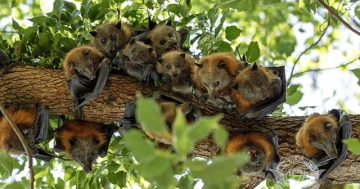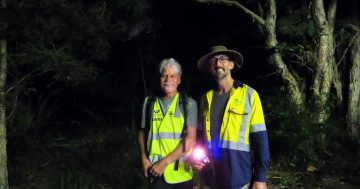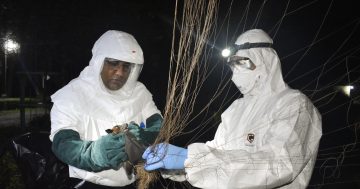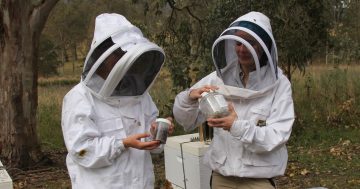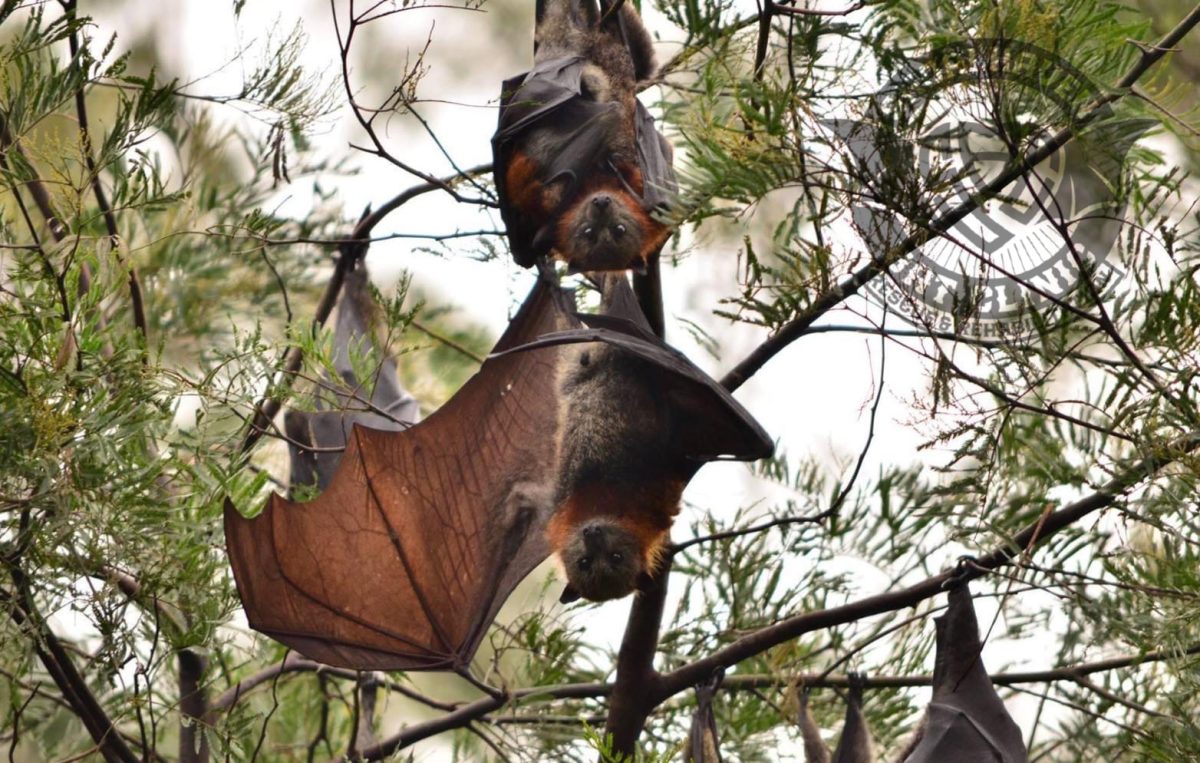
Vaccinated Bat Clinic volunteer Jess Free will host a Halloween fundraiser in Narrawallee to help rescued bats. Photo: Shoalhaven Bat Clinic.
Ghouls, ghosts, zombies and witches are popping up in our neighbourhoods, but there’s one batty homeowner that’s taking her spooky showcase to new heights.
Bat lover Jess Free is taking advantage of the Halloween hype to raise awareness and funds for the Shoalhaven Bat Clinic, a purpose-built rehabilitation facility for native bats.
Her home at 123 Matron Porter Drive in Narrawallee will be decorated with all sorts of creepy creatures, including plenty of bats, and visitors are invited to make a donation to the bat clinic. She’ll also be spreading the word about the importance of bats to our ecosystem and what the public can do to protect them.
Spring is the peak bat rescue season, and Jess said Halloween was an ideal opportunity to shine a light on bats and the work that volunteer rescuers do.
“Shoalhaven Bat Clinic – and bats themselves – is a needed and local service that fits very well with the Halloween theme, and needs our help,” she said.
“We need to raise awareness, stop the stigma around bats, and hopefully my kids, and theirs, will have bats around in greater populations than we do right now.”
Flying fox and microbat coordinator Trista Kyriacou said the bat clinic operates under the licence of Wildlife Rescue South Coast, the authorised rescue group for the Shoalhaven, Southern Illawarra, Southern Highlands Southern Tablelands, Eurobodalla and Bega.
Completely volunteer run, each year the not-for-profit organisation takes in hundreds of flying foxes and microbats that have been injured, are sick or orphaned with the aim of rehabilitating the animals and releasing them back into the wild.
Bat baby season is here and, with the warmer weather, Trista said bats were more active and camp numbers increased.
“People are getting out more and doing more around their houses and may stumble across or disturb microbat roosts,” she said.
“We are also expecting a bad bushfire season and dry summer this year, which will impact bat health and habitats.”
Flying foxes play a vital role as our only nighttime and long-distance pollinators and, although they suffered devastating habitat loss during the 2019-20 bushfires, Trista said they would play a critical role in restoring the decimated forests over the coming years.
“Microbats are our tiny insectivorous bats that can consume up to half their body weight in insects, including disease-carrying mosquitos, every night,” she said.
“They work in the dead of the night and often unnoticed providing insect termination around crops and farmlands.”
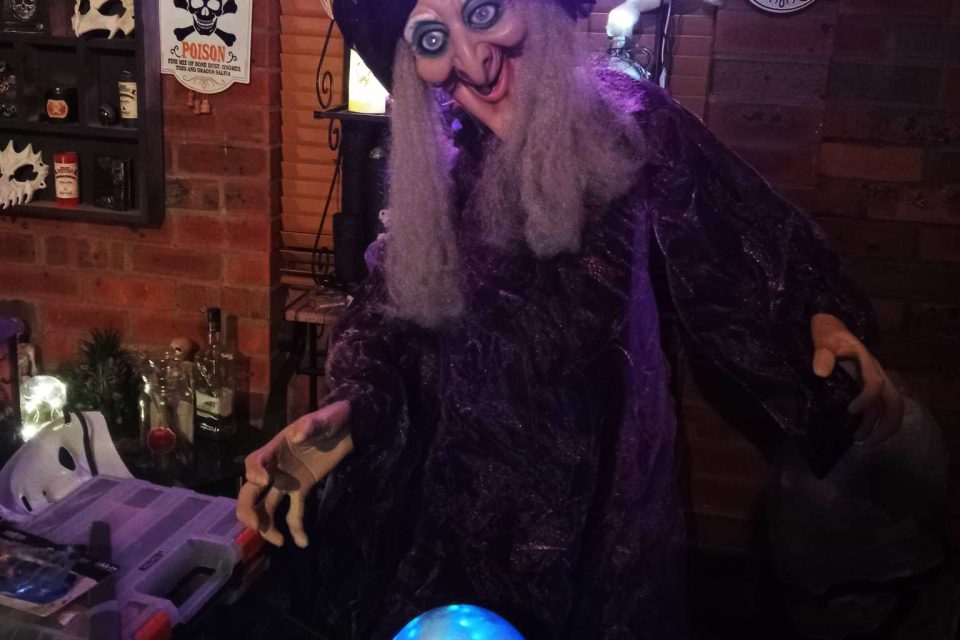
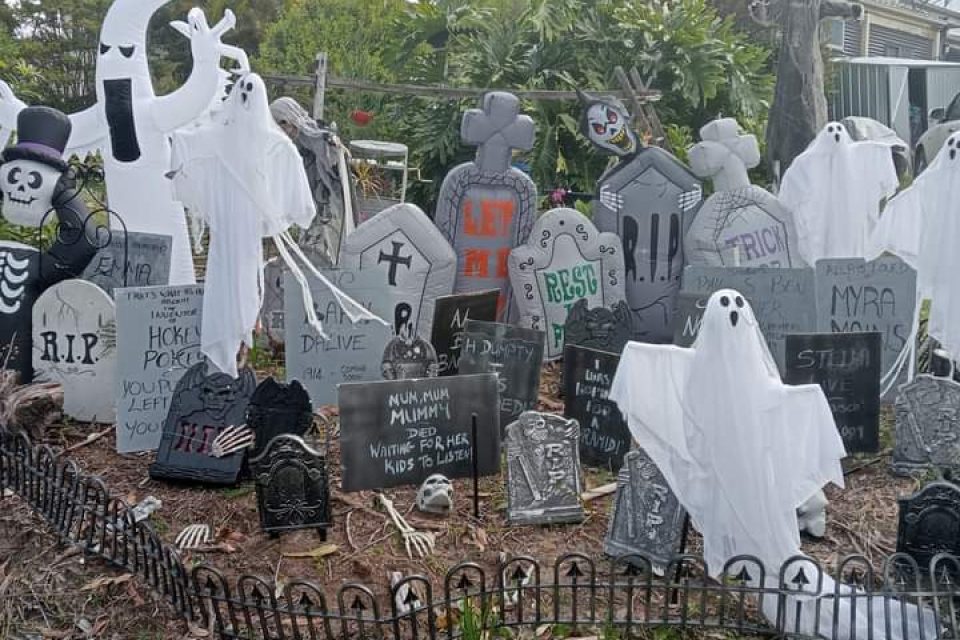
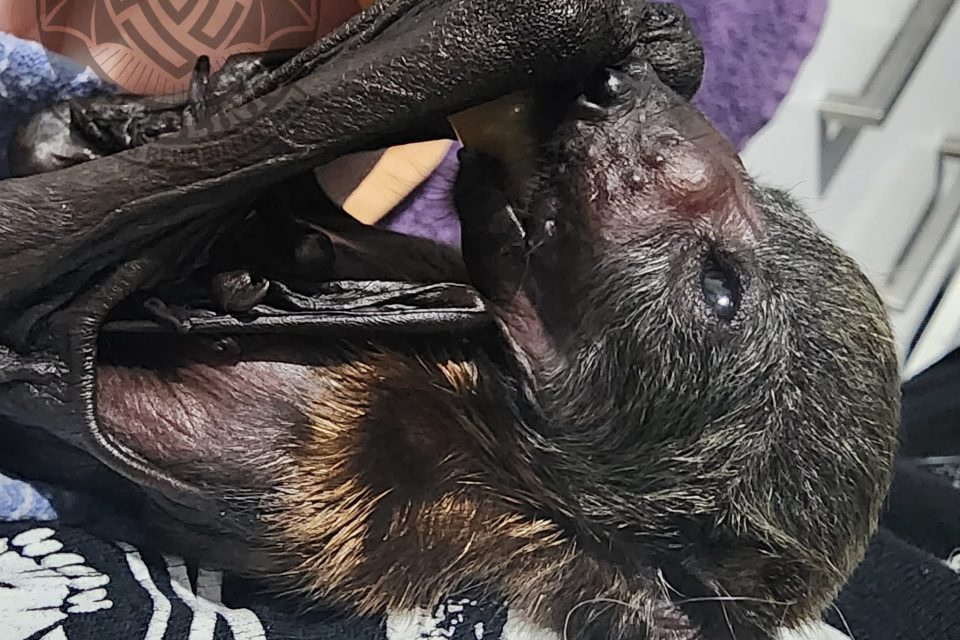
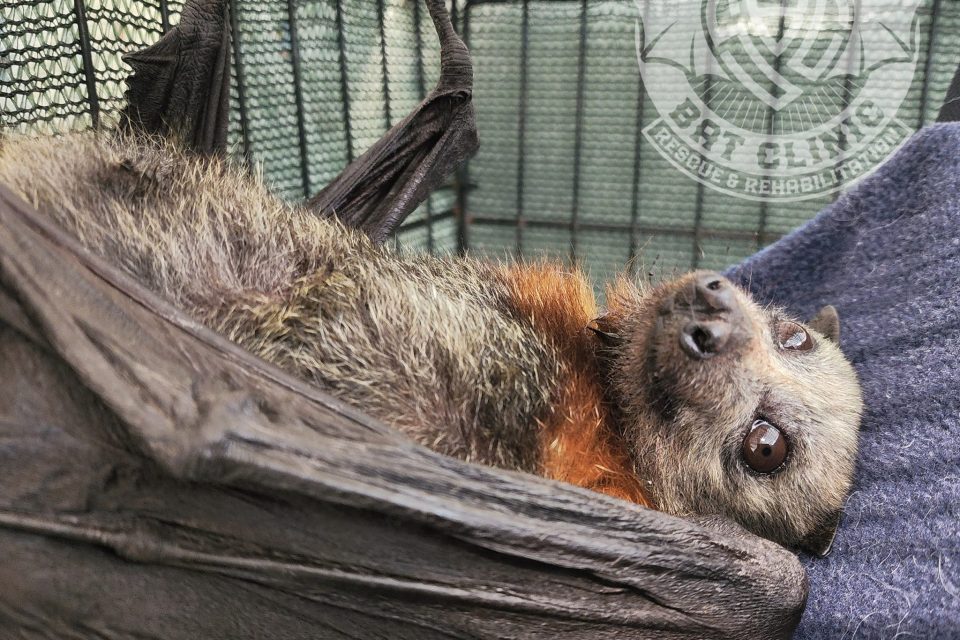
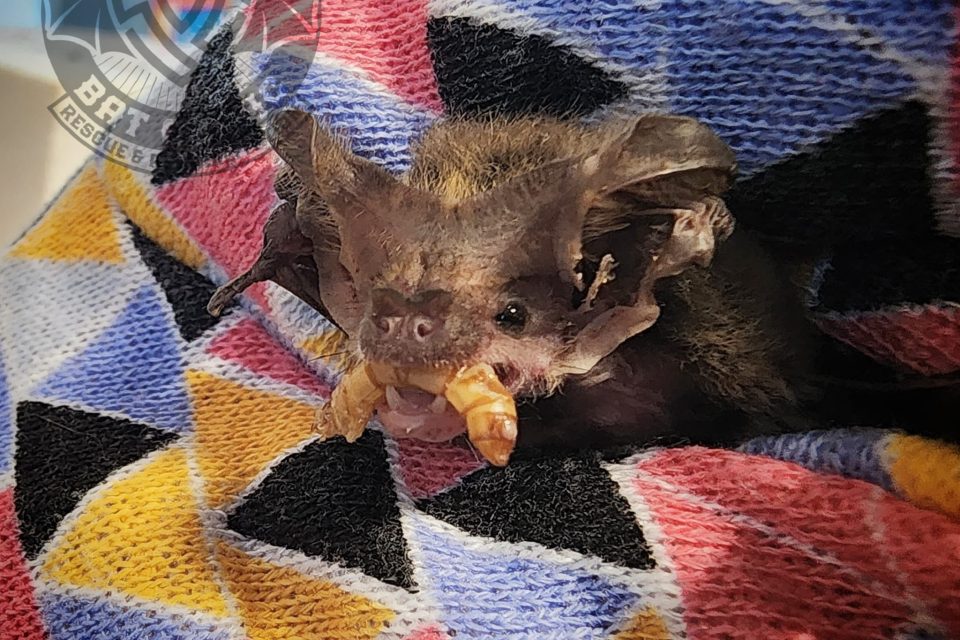
The Halloween event will raise funds to support the feeding, running costs and medical expenses of bats in care.
“We hope people will come visit and stay a while or just drop in,” Jess said.
She said it was important to start the conversation about bats because many people were frightened of them or didn’t know much about them.
“I have always always been fascinated by bats,” she said.
“But I remember as a kid a colony fly out near Warrick Farm in Sydney and watching in amazement, with my mum yelling at me to wind up the car windows.
“It was always a dream to somehow help them in one way or another. I didn’t imagine that I would be a part of something as amazing as the Shoalhaven Bat Clinic.”
She said Halloween, dressing up and making costumes and characters are things she has always loved.
“Mix that with the weird and bizarre associated with Halloween and you have everything I love in a nutshell,” Jess added.
Jess initially started fundraising for the Make a Wish Foundation in 2021 after her cousin Jada, who was diagnosed with restrictive cardiomyopathy, received a heart transplant at the age of nine in 2019.
Her son has also been in and out of Westmead Children’s Hospital since he was three weeks old, so she was quick to sign up for the foundation’s Halloween fundraiser, providing loads of fun and treats for her neighbours.
“This is why Halloween has always been my favourite holiday. As I got older the stress and pressure of Christmas became very apparent. Halloween doesn’t have that,” she said.
“While Make a Wish is a very important and needed organisation, the bats also need our help.”
The public can help protect bats by keeping cats indoors at night, avoiding the use of sticky fly traps and replacing fruit tree netting and barbed wire fences with wildlife-friendly options.
“If you find any bat alone during the day, on the ground or hanging close to the ground, entangled in netting or barbed wire, on powerlines or trapped inside a building you should always ring your local wildlife rescue group immediately,” Trista explained.
“Babies will survive on dead mums for days, so this is the reason we stress about reporting all deceased bats as well.”
Never touch or handle a bat, unless vaccinated for Australian Bat Lyssavirus (ABLV), which can be spread via a bite or scratch from an infected bat. Less than 1 per cent of bats are infected with ABLV but the risk should never be taken, as infection is fatal.
“Any bat suspected to have bitten or scratched someone must be euthanised to be tested so it is always safest to follow the rule of no touch, no risk for all parties,” Trista said.
The Wildlife Rescue South Coast phone line 0418 427 214 is open 24/7 and rescuers are on call to attend at all hours. Follow Shoalhaven Bat Clinic on Facebook.









